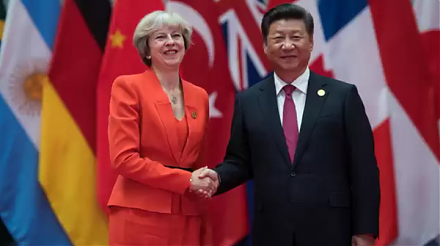

2019-06-03 11:31:00 Mon ET
technology antitrust competition bilateral trade free trade fair trade trade agreement trade surplus trade deficit multilateralism neoliberalism world trade organization regulation public utility current account compliance
The Sino-U.S. trade war may be the Thucydides trap or a clash of Caucasian and non-Caucasian civilizations. The proverbial Thucydides trap refers to the historical fact that the dominant superpowers may experience inevitable economic sanctions (or even military confrontations) as these countries become more powerful in the world. The current Sino-U.S. trade conflict may result in the self-fulfilling prophecy that the incumbent American superpower fights fears of losing global dominance by precipitating a tit-for-tat trade war against its most plausible Chinese challenger.
In accordance with what Harvard political scientist Samuel Huntington suggests, the dominant superpowers may inadvertently go through the clash of civilizations. In the current Sino-U.S. trade war, China and the U.S. may have fallen into the Thucydides trap or an aggressive clash of Chinese and Caucasian civilizations. In fact, the Trump administration advocates *America First* trade protectionism with ubiquitous domestic populist support, whereas, the Chinese Xi administration calls for free markets and open trade flows. U.S. trade regulators should help curtail the imminent Chinese threat to international institutions such as WTO rules and other fair trade practices. The Trump administration must thus demonstrate that a higher moral purpose motivates U.S. protectionist trade policies if the Trump team intends to garner wider international support.
If any of our AYA Analytica financial health memos (FHM), blog posts, ebooks, newsletters, and notifications etc, or any other form of online content curation, involves potential copyright concerns, please feel free to contact us at service@ayafintech.network so that we can remove relevant content in response to any such request within a reasonable time frame.
2018-01-07 09:33:00 Sunday ET

Zuckerberg announces his major changes in Facebook's newsfeed algorithm and user authentication. Facebook now has to change the newsfeed filter to prior
2018-03-19 10:37:00 Monday ET

Uber's autonomous car causes the first known pedestrian fatality from a driverless vehicle and thus sets off the alarm bell for artificial intelligence.
2018-01-03 08:38:00 Wednesday ET

President Trump targets Amazon in his call for U.S. Postal Service to charge high delivery prices on the ecommerce giant. Trump picks another fight with an
2017-05-13 07:28:00 Saturday ET

America's Top 5 tech firms, Apple, Alphabet, Microsoft, Amazon, and Facebook have become the most valuable publicly listed companies in the world. These
2018-02-01 07:38:00 Thursday ET

U.S. senators urge the Trump administration with a bipartisan proposal to prevent the International Monetary Fund (IMF) from bailing out several countries t
2025-10-11 14:33:00 Saturday ET

Stock Synopsis: With a new Python program, we use, adapt, apply, and leverage each of the mainstream Gemini Gen AI models to conduct this comprehensive fund